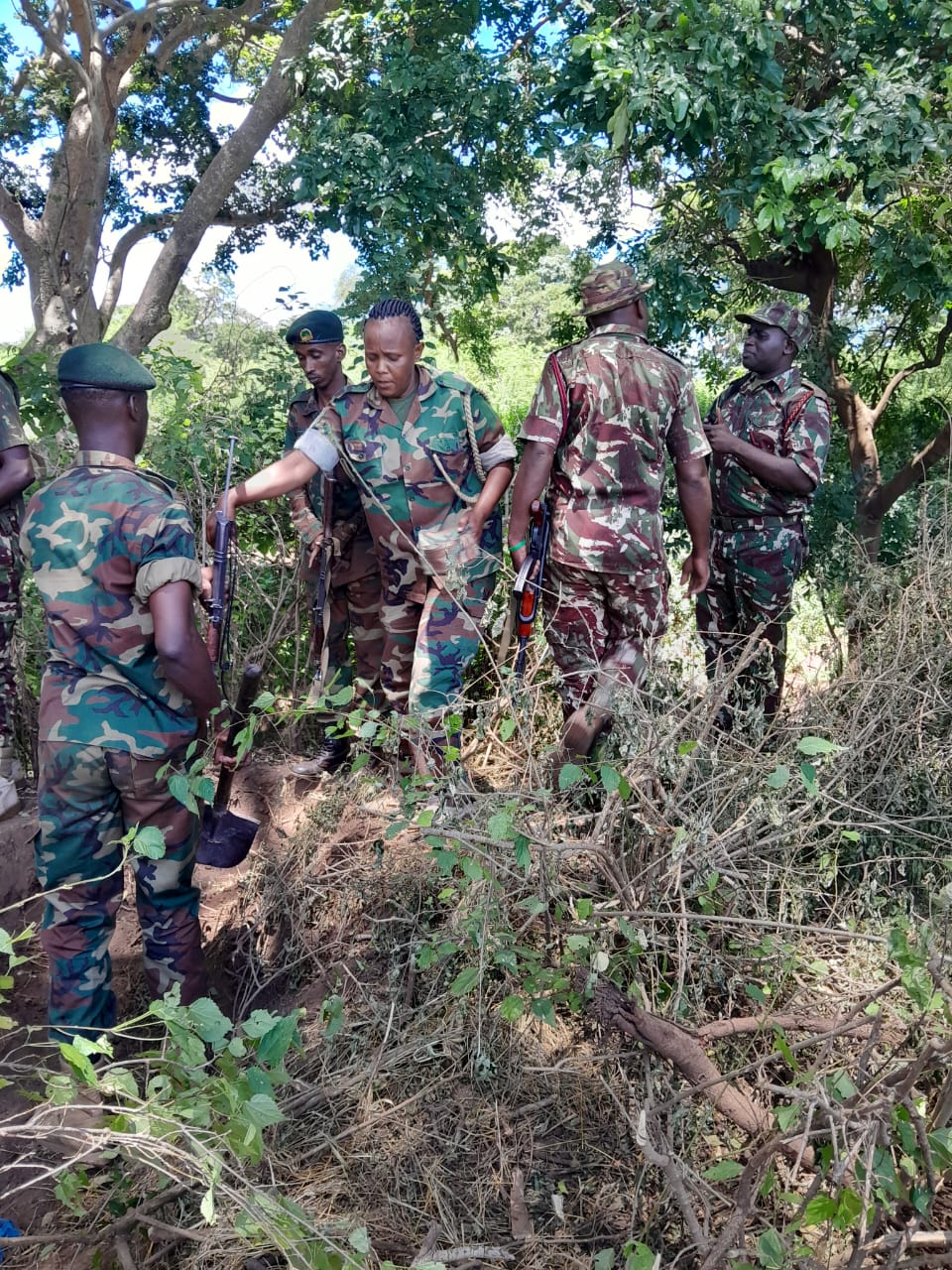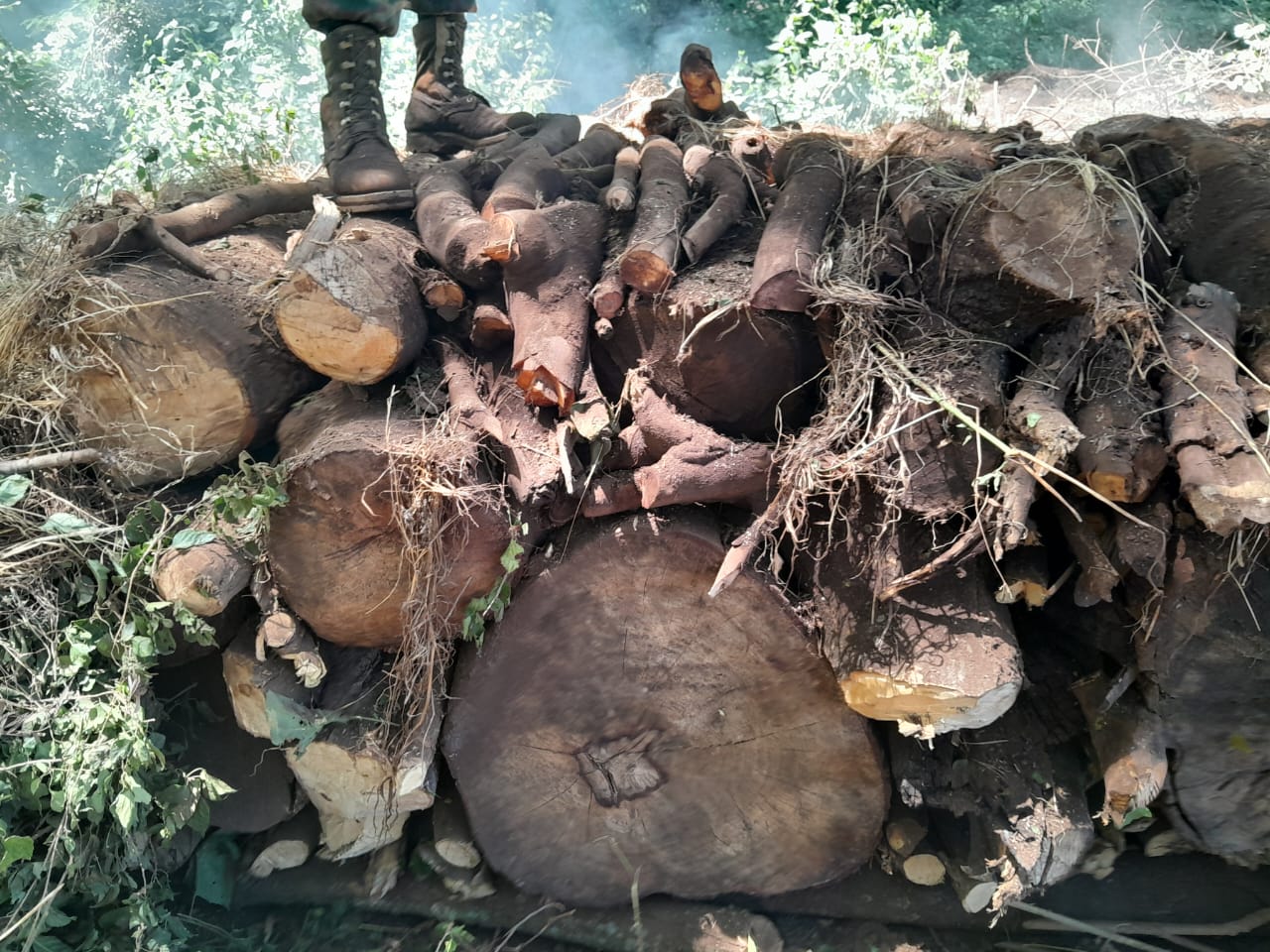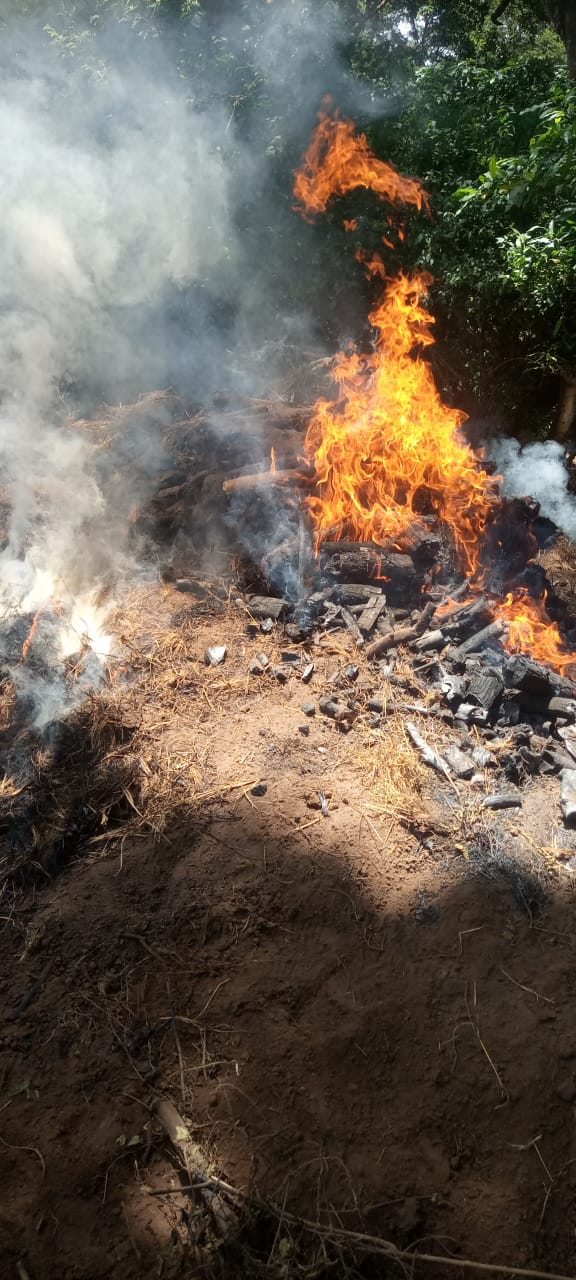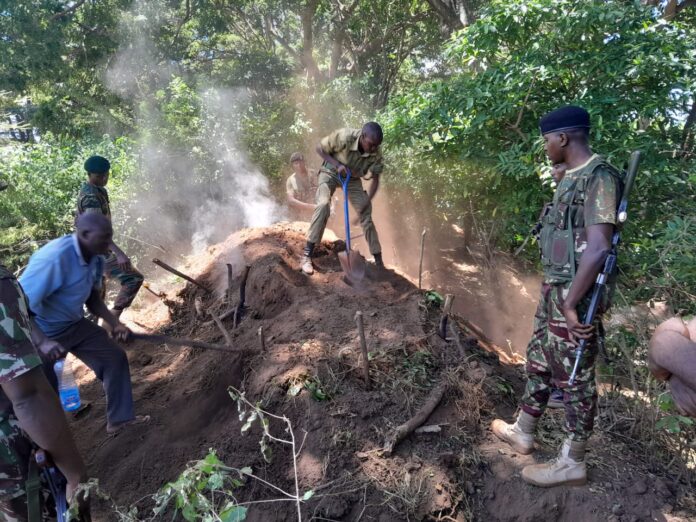By Albert Mwangeka
Taita Taveta, Kenya: A coordinated operation involving the County Government of Taita Taveta and various national agencies, including the Kenya Forest Services (KFS) and Anti-Stock Theft Unit, resulted in the apprehension of two individuals along the banks of River Lumi in Taveta. This operation forms part of an ongoing endeavor to combat charcoal burning, a rampant issue in the county.
Grantone Mwandawiro, the County Executive Committee Member (CECM) overseeing Water, Sanitation, Environment, Climate Change, and Natural Resources, has branded charcoal burning as a significant menace.
 He underscored its role in promoting deforestation, exacerbating climate change, and hastening desertification. Despite the recent lifting of the ban on logging in plantation forests by President William Ruto, Mwandawiro cautioned against illegal logging, emphasizing that it remains strictly prohibited.
He underscored its role in promoting deforestation, exacerbating climate change, and hastening desertification. Despite the recent lifting of the ban on logging in plantation forests by President William Ruto, Mwandawiro cautioned against illegal logging, emphasizing that it remains strictly prohibited.
Conservation Efforts
Peter Mwangi, a conservator from the Kenya Forest Services (KFS), echoed Mwandawiro’s concerns, emphasizing the detrimental impact of charcoal burning on land degradation and contradicting ongoing tree-growing initiatives by both the National and County Governments.
“These initiatives aim to bolster tree and forest cover, with Taita Taveta County setting ambitious targets to increase tree cover from 8% to 30% and forest cover from 3.4% to 10%, ultimately rehabilitating 360,000 hectares of land” noted Mwangi.
 The apprehended individuals were found in possession of tools such as a fork jembe, spade, panga, along with a gunny bag of charcoal, approximately 2 tonnes of logs, and 8 charcoal kilns used for processing acacia trees. These joint efforts highlight the ongoing commitment to curb environmental degradation in the region.
The apprehended individuals were found in possession of tools such as a fork jembe, spade, panga, along with a gunny bag of charcoal, approximately 2 tonnes of logs, and 8 charcoal kilns used for processing acacia trees. These joint efforts highlight the ongoing commitment to curb environmental degradation in the region.
Alternative Livelihood Initiative
 In a proactive approach, the department is gearing up to launch an alternative livelihood initiative, collaborating with charcoal producers and stakeholders to manufacture briquettes.
In a proactive approach, the department is gearing up to launch an alternative livelihood initiative, collaborating with charcoal producers and stakeholders to manufacture briquettes.
This initiative aims to utilize tree branches without necessitating the felling of entire trees, thus promoting sustainable practices while providing viable economic alternatives.














